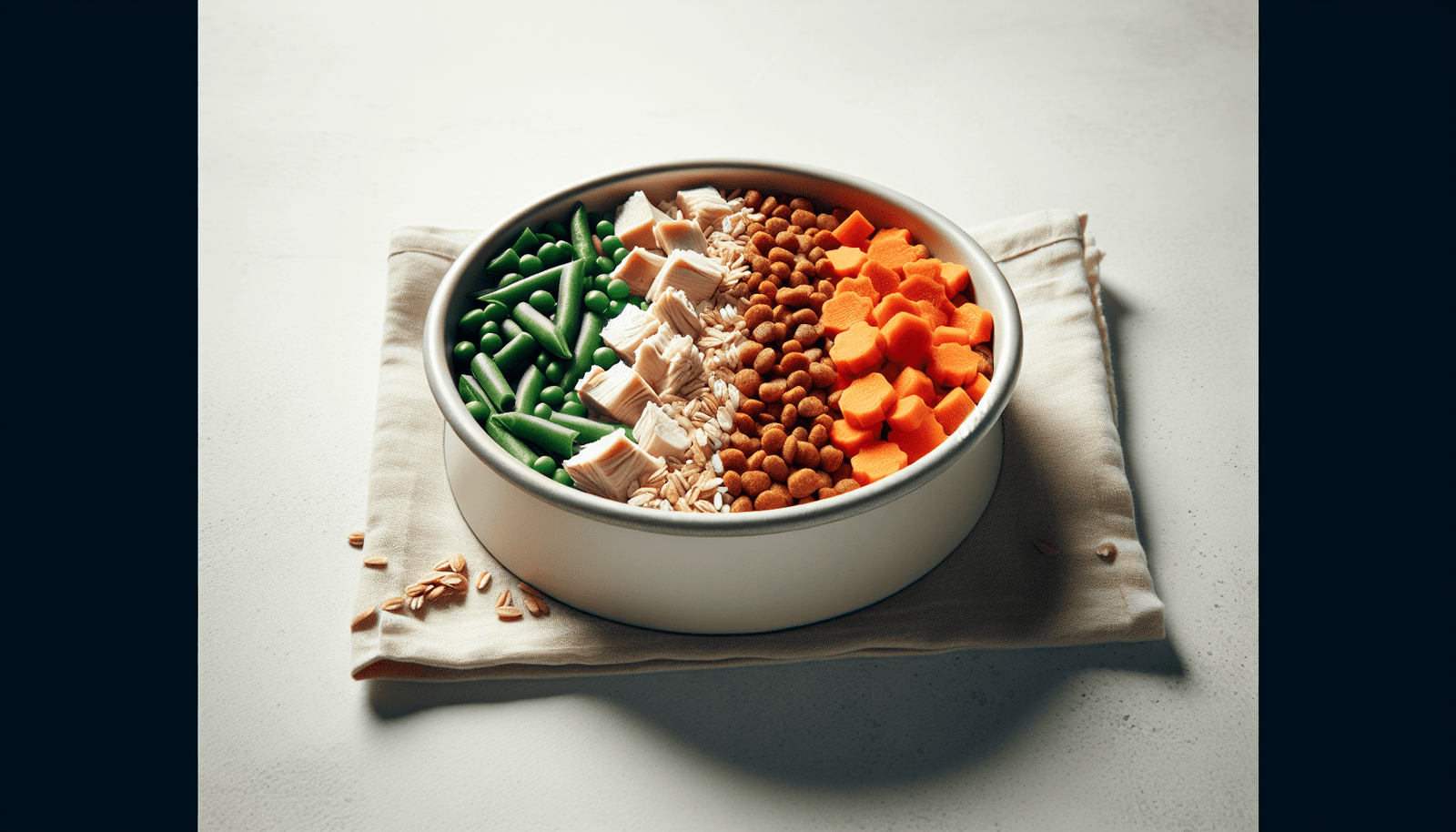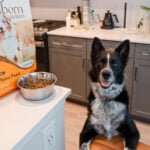
In “Can I Feed My Dog Homemade Food? Health Experts Weigh In,” you will discover whether preparing your dog’s meals at home is truly beneficial. Canine health experts and veterinarians delve into the importance of a balanced diet, including essential nutrients, supplements, and vitamins crucial for maintaining your dog’s overall well-being. With insights into the specific health needs of different breeds and ages, you’ll gain a comprehensive understanding of how to support your furry friend’s skin, coat, joint, and dental health. If you’re considering switching to homemade dog food, this guide will help ensure you’re informed and prepared to provide your dog with the optimal nutrition they deserve. Have you ever wondered whether it’s okay to feed your dog homemade food? You’re definitely not alone. Many dedicated and loving pet parents ponder whether a homemade diet could be a healthier, safer, and more nutritious alternative for their furry friend. With ever-growing concerns about commercial dog food recalls and a surge of interest in holistic pet care, a homemade diet can seem like a very appealing option.
The Rising Popularity of Homemade Dog Food
Homemade dog food is gaining popularity, and for good reasons. Many pet owners want to take control over what goes into their dog’s diet, ensuring that their food is free from artificial preservatives, fillers, and other undesirable components commonly found in commercial dog food.
Why Consider Homemade Dog Food?
Feeding your dog homemade food allows you to have complete control over the ingredients used. It’s easier to introduce fresh, high-quality ingredients tailored to your dog’s specific needs and preferences. Additionally, creating your dog’s meals at home can help you avoid potential allergens and possibly improve overall health, skin, and coat conditions.
Understanding Your Dog’s Nutritional Needs
Before diving into the world of homemade dog food, it’s crucial to understand your dog’s nutritional needs. A balanced diet is key to maintaining your dog’s health and well-being. Dogs require a variety of nutrients, including proteins, carbohydrates, fats, vitamins, and minerals.
Essential Nutrients for Dogs:
- Proteins: Critical for muscle development and repair. Sources include chicken, beef, fish, and legumes.
- Carbohydrates: Provide energy. Sources include rice, sweet potatoes, and oats.
- Fats: Necessary for brain function and energy. Sources include fish oil and flaxseed oil.
- Vitamins and Minerals: Vital for overall health. Sources include fruits, vegetables, and specific supplements if needed.
Consult With a Veterinarian
Before making any significant changes to your dog’s diet, always consult with your veterinarian. They can provide insight on whether a homemade diet is appropriate for your dog, considering age, breed, weight, and health status.
Tailoring the Diet to Your Dog’s Specific Health Needs
Each dog is unique, and their dietary needs can vary widely. For instance, senior dogs may need more joint support, which can be achieved through foods rich in glucosamine and chondroitin. Young and active dogs may require higher protein intake for muscle growth and repair.
Health-Specific Diet Modifications:
- Joint Health: Incorporate glucosamine-rich ingredients like chicken feet or supplements.
- Skin Health: Include omega-3 fatty acids found in fish to maintain healthy skin and coat.
- Digestive Health: Add probiotics to promote a healthy gut.
The Importance of a “Complete and Balanced” Diet
A complete and balanced diet means that the food provides all the necessary nutrients, in the right proportions, that your dog needs for maintaining optimal health. The Association of American Feed Control Officials (AAFCO) sets the standard for pet food nutritional adequacy in the U.S.
Components of a Balanced Diet
To ensure the homemade food you prepare for your dog is nutritionally complete, consider working with a veterinary nutritionist. They can guide you in making recipes that meet all your dog’s nutritional needs.
Key Components for Balance:
- Proteins and Amino Acids: Provides building blocks for tissues.
- Fats and Fatty Acids: Supports cellular functions and energy.
- Vitamins: Essential for metabolic processes.
- Minerals: Important for bone health and nervous system function.
Steps to Prepare Homemade Dog Food
Creating homemade dog food doesn’t have to be complicated. With a proper understanding of the required nutrients and a little bit of planning, you can create meals that are both delicious and nutritious.
Step-by-Step Guide
- Consult Your Veterinarian: Always start by touching base with a vet to get their input.
- Research Recipes: Look for recipes that are verified by veterinary nutritionists.
- Select Quality Ingredients: Use fresh, high-quality meats and vegetables.
- Prepare and Store: Cook in bulk and store in portioned containers for easy feeding.
- Supplement Wisely: Use supplements to fill in any nutritional gaps.
Pros and Cons of Homemade Dog Food
Sure, you’re eager to start making your dog’s food, but like everything, homemade dog food has its pros and cons.
Pros
- Control Over Ingredients: You decide what goes in the food, ensuring the highest quality.
- Freshness: No preservatives mean fresher meals.
- Customization: Tailor the diet to meet your dog’s specific health needs.
Cons
- Time-Consuming: Preparing meals can be labor-intensive.
- Nutritional Imbalance Risk: Difficult to ensure all nutritional needs are met.
- Cost: High-quality ingredients can be more expensive.
The Role of Supplements in Homemade Diets
While homemade dog food can provide many benefits, supplementation is often necessary to ensure a balanced diet.
Common Supplements for Dogs
- Multivitamins: To cover general health needs.
- Fish Oil: Rich source of omega-3 fatty acids for skin and coat health.
- Probiotics: Supports digestive health.
- Joint Supplements: Glucosamine and chondroitin for joint support.
Benefits of Using Supplements:
Supplements play a crucial role in filling nutritional gaps. They can provide additional benefits like strengthening immunity, supporting joint health, and promoting a healthy coat.
Common Mistakes to Avoid
When preparing homemade dog food, some common pitfalls can undermine your best efforts.
Pitfalls to Avoid
- Overfeeding/Underfeeding: Ensure portion sizes are appropriate.
- Ignoring Essential Nutrients: Balance is key; don’t focus too much on one nutrient.
- Human Foods That Are Toxic to Dogs: Ingredients like onions, garlic, chocolate, and grapes should be avoided.
Sample Recipes for Homemade Dog Food
To get you started, here are a couple of sample recipes that are both easy to make and nutritious.
Recipe 1: Chicken and Vegetable Medley
Ingredients:
- 1 lb chicken breast, cubed
- 1 cup carrots, diced
- 1 cup green beans, diced
- 1 cup brown rice
- 2 cups of water
- 1 tbsp fish oil
Instructions:
- Cook rice in water until fully done.
- In a separate pan, cook the chicken until no longer pink.
- Steam carrots and green beans until tender.
- Mix all ingredients together, add fish oil, and serve.
Recipe 2: Beef and Sweet Potato Mash
Ingredients:
- 1 lb ground beef
- 2 medium sweet potatoes, peeled and diced
- 1 cup peas
- 1 cup rolled oats
- 1 tbsp flaxseed oil
- 2 cups of water
Instructions:
- Cook sweet potatoes in water until tender, then mash.
- Cook ground beef until no longer pink.
- Boil oats in water until soft.
- Mix beef, mashed sweet potatoes, peas, and oats. Add flaxseed oil and stir.
Signs Your Dog is Thriving or Struggling on a Homemade Diet
Finally, it’s crucial to monitor your dog closely when switching to homemade food.
Signs of Success
- Healthy Coat and Skin: Shiny coat and itch-free skin.
- Good Energy Levels: Active and playful demeanor.
- Normal Bowel Movements: Regular, healthy stools.
Signs of Nutritional Deficiency
- Lethargy: Low energy.
- Skin Issues: Dry, flaky skin or hair loss.
- Poor Weight Management: Unexplained weight loss or gain.
If you notice any negative signs, consult your veterinarian to reassess your dog’s diet.
Conclusion
Feeding your dog homemade food can be incredibly rewarding and beneficial if done correctly. With careful planning, consultation with veterinary professionals, and a commitment to using high-quality ingredients, you can provide a nutritious, balanced diet tailored to meet your dog’s needs. Always monitor your pet’s health and be willing to make adjustments as necessary. By taking these steps, you can help ensure that your furry friend leads a healthy, happy, and vibrant life.
By diving into the world of homemade dog food, you’re not just preparing meals; you’re investing in your dog’s long-term health and well-being. So why not give it a try? After all, a happy, well-nourished pup is priceless!







